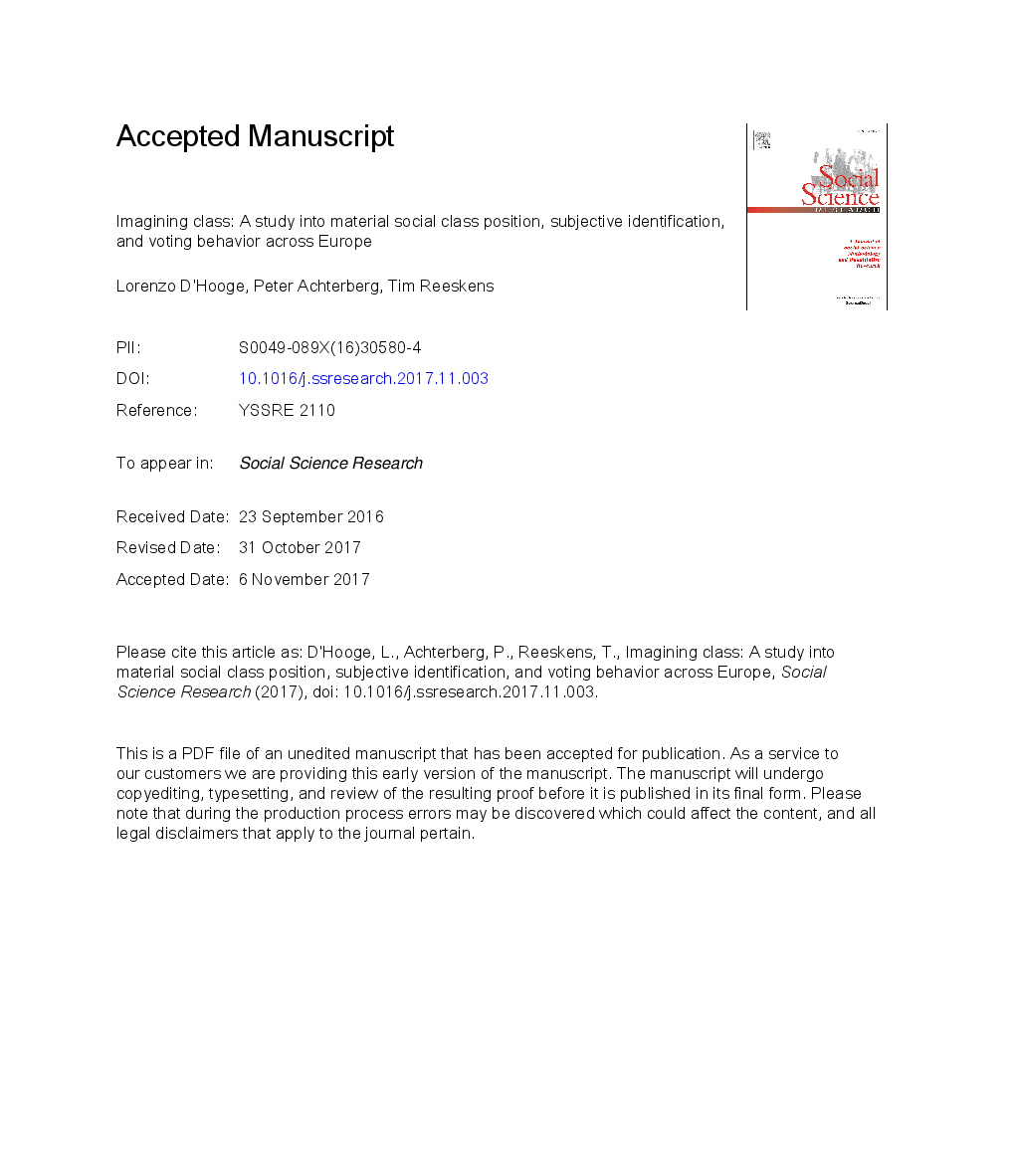ترجمه فارسی عنوان مقاله
تصور کردن کلاس: مطالعه به موقعیت طبقه اجتماعی مادی، شناسایی ذهنی و رفتار رای دهی در سراسر اروپا
عنوان انگلیسی
Imagining class: A study into material social class position, subjective identification, and voting behavior across Europe
| کد مقاله | سال انتشار | تعداد صفحات مقاله انگلیسی |
|---|---|---|
| 140550 | 2018 | 54 صفحه PDF |
منبع

Publisher : Elsevier - Science Direct (الزویر - ساینس دایرکت)
Journal : Social Science Research, Volume 70, February 2018, Pages 71-89
ترجمه کلمات کلیدی
طبقه اجتماعی، رفتار رأی گیری، رای دادن کلاس رأی چپ و راست، تئوری هویت اجتماعی، مطالعه انتخابات اروپا،
کلمات کلیدی انگلیسی
Social class; Voting behavior; Class voting; Left-right voting; Social identity theory; European elections study;

